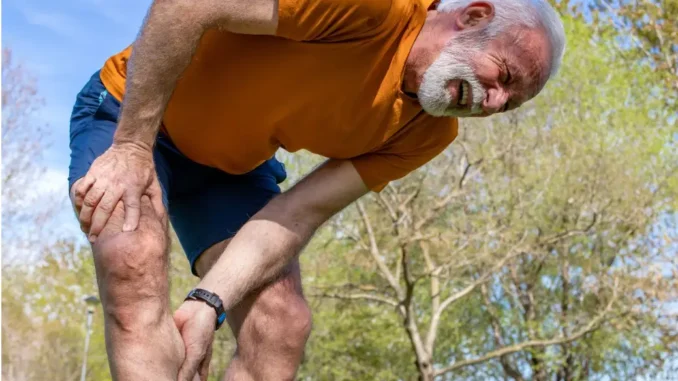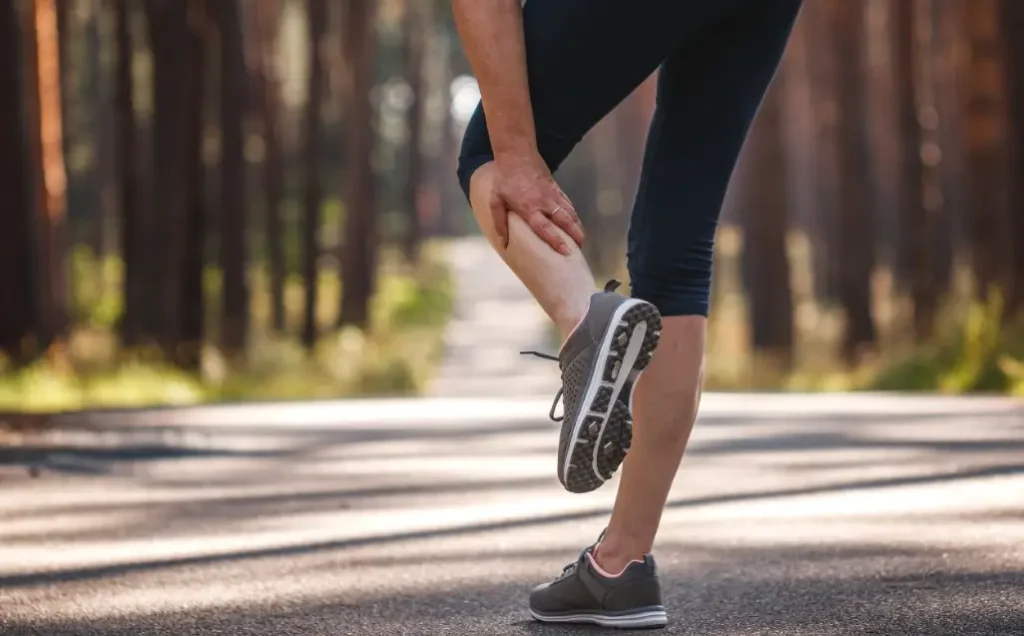
On a hot summer day, while exercising in the park, or during an intensive session at the gym, you may have experienced a sudden , stinging sensation : a muscle cramps .This often painful phenomenon has affected most of us at least once in our lives, and while some cramps are short-lived and disappear quickly, others can last longer, leaving us with a lingering sense of discomfort. But what really causes these cramps? Are they simply a signal from our body telling us to slow down, or is there something more complex behind it?
In today’s article, we will explore the depths of muscle cramp science , trying to understand the real causes behind them. But we won’t just stop at the causes; we will also analyze solutions and strategies to prevent and treat these annoying muscle spasms. So, if you’ve ever wondered “Why do we suffer from muscle cramps?”, you’re in the right place. Let’s venture together on this journey to discover the mysteries of our muscles.
What are Muscle Cramps?
When we talk about muscle cramps, we are referring to involuntary , sudden and often painful contractions of a muscle or group of muscles. These contractions can last from a few seconds to several minutes, and while the sensation may be temporary, the impact can last well beyond the cramp’s disappearance, leaving the muscle sore for a period of time.

But, what are the differences between cramps, strains and contractures? Although they may seem similar in terms of pain, they are distinct phenomena:
- Cramps : As mentioned, they are involuntary and intense contractions of the muscles. They arise suddenly and can be caused by various factors , which we will explore in detail throughout the article.
- Strains : These occur when a muscle is stretched beyond its normal limits , potentially causing small tears in the muscle itself. Strains are often the result of an abrupt or unexpected movement and may require a period of rest to heal.
- Contractures : These are prolonged tension or stiffness in a muscle, often caused by poor posture , repetitive movements, or stress . Unlike cramps, which are temporary, a contracture can last for a longer period of time and may require therapies such as massage or physical therapy to relieve tension.
Understanding the nature and differences between these muscle disorders is critical. While cramps can be a temporary annoyance , strains and contractures require different attention and may indicate the need to change your exercise habits .
The underlying causes of Muscle Cramps
Identifying the precise causes of muscle cramps can sometimes resemble looking for a needle in a haystack : there are many potential factors involved, and the answer may vary from individual to individual. However, several studies and research have highlighted some common causes that deserve attention:
- Electrolyte Imbalances : Muscles require various electrolytes – such as sodium , potassium and calcium – to function properly. When these electrolytes are out of balance, it can become difficult for muscles to contract and relax appropriately, potentially leading to cramps. This imbalance can be caused by factors such as an unbalanced diet, excessive sweating or insufficient fluid intake.
- Dehydration : Water plays a crucial role in keeping your muscles well hydrated and functioning . When we become dehydrated, blood volume can decrease, making it harder for nutrients and electrolytes to reach the muscles. This can cause tension and cramps.
- Muscle Strain : When a muscle is overworked or used inappropriately, it can become tired and more prone to cramps. This is especially true if you don’t give the muscle adequate time to recover between training sessions.
- Nutritional Deficiencies : Sometimes, a diet that lacks certain key nutrients like magnesium , potassium or B vitamins can predispose you to muscle cramps. These nutrients are essential for normal muscle function and their absence can cause dysfunction .
- External Factors : Factors such as extreme temperatures (both hot and cold) can affect the muscle’s ability to function properly. Clothing that is too tight or inappropriate can also limit blood flow to the muscles, causing cramps.
While these causes are among the most common, it is important to note that each individual is unique. What causes cramps in one person may not have the same effect in another. Therefore, it is crucial to pay attention to your body’s signals and consult a health professional or physical trainer for personalized insights.
Prevention and Treatment Strategies
If you’ve experienced muscle cramps before, you’ll know how painful and uncomfortable they can be . The good news is that there are a number of preventative and therapeutic strategies that can help you reduce your risk of cramps and relieve them when they occur. Let’s see them together:

- Hydration : Make sure you drink enough water throughout the day, especially before, during and after training. Water helps keep muscles supple and functioning well, reducing the risk of cramps.
- Electrolyte Supplementation : If you sweat a lot during exercise or live in a hot climate, consider drinking sports drinks that contain electrolytes . These help balance sodium, potassium and magnesium levels, which are critical for muscle function.
- Stretching and Warming Up : Before starting any physical activity, take a few minutes to warm up your muscles with light, aerobic movements. Next, spend time doing stretches, focusing in particular on the muscles that will be worked most during the activity.
- Adequate Rest : If you train intensely, make sure you give your muscles time to recover. This not only reduces the risk of cramps but also helps prevent injuries and overtraining .
- Massage : A good massage can help relax tense muscles and increase circulation. If you often suffer from cramps, consider scheduling regular massages .
- Maintain Excellent Posture : If you sit for long periods or perform physically demanding work, be sure to maintain good posture to avoid muscle tension and stress.
- Diet Assessment : As mentioned, certain nutritional deficiencies can predispose to cramps. Evaluate your diet and consider, if necessary, a consultation with a nutritionist to ensure adequate intake of essential nutrients.
- Medications and Supplements : In some cases, it may be helpful to consider magnesium or other mineral supplements . However, before taking any supplement or medicine, always consult a health professional.
The key to preventing cramps is to listen to your body and take a proactive approach. Likewise, if you experience cramps, it is important to treat them promptly and try to understand what may have caused them, so as to prevent them in the future.
Mythologies and False Myths about Muscle Cramps
In the world of fitness and health, misinformation and urban legends can proliferate quickly. Muscle cramps, being a phenomenon as common as it is mysterious, are not immune to this tendency. Let’s examine some of the most common misconceptions about cramps and try to clarify the truth behind them.
- Banana as a universal remedy : Many believe that eating a banana can prevent cramps thanks to its potassium content . Although potassium is essential for muscle function, it is not the only electrolyte that muscles need. Relying on bananas alone could overlook other key elements like magnesium and calcium.
- Only Athletes Get Cramps : Another common myth is that only those who train intensely experience muscle cramps. In fact, anyone can get cramps, regardless of fitness level. Age, diet and other factors can influence the propensity for cramps.
- Cold Causes Cramps : While cold temperatures can affect muscles and joints, they are not the only cause of cramps. As we have seen, there are many potential causes, and cold is just one of many external factors.
- Cramps are always a sign of dehydration : Dehydration can definitely contribute to cramps, but it’s not the only cause. Relying solely on water as a solution may not solve the problem if the root cause is, for example, excess fatigue or a nutritional deficiency.
- Cramps are 100% preventable : Unfortunately, despite all precautions, cramps can still occur . While we can significantly reduce the risk, it is important to recognize that they may sometimes occur without an obvious cause.
Knowing the truth behind these myths is crucial. Avoid falling into the trap of following advice that is not based on scientific evidence and always remember to consult a health professional to obtain reliable and personalized information.
ANATOMY , FITNESS AND WELLNESS